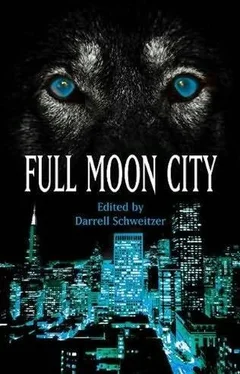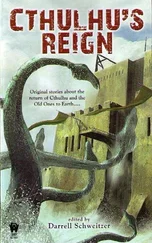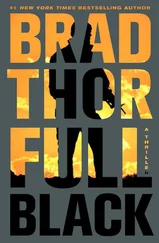Still she forcibly refrains from looking at me, and my smile dies.
For here is another memory of home, and one I wish I could forget. Why is it that I need to build my memories of our house piece by piece, like our bedroom: so small that our marriage bed, too big to fit through the door, had to be built inside the room-that room, warm as a hen’s nest in winter, with its white plaster walls and black beams and tiny two-paned window set to catch sunrise and moonrise in the east-I have to build it one eye-blink at a time, yet the bad memories leap sharp and wounding to the front of my mind. There is Georgi, with his hunted look and restless body, and there are the shepherds complaining of sheep dead in the shearing pen, and there is our son, so small and his eyes so wide, never understanding why these angry men have come to accuse his father… of what? Even they did not seem to know, except that we were the only people in the valley who did not raise sheep. My poor Georgi! I had to take them out and show them our goats, that I kept for milk and for the finer wool, and such a clamor did the does raise when they smelled the sheep blood on the men’s clothes that the boy started to cry and the men went away ashamed. But by then Georgi was also gone, back up into the high trees. The best hunter in the valley-as if he had to demean himself by slaughtering sheep penned and helpless! It was two sheep dogs that went bad, the way they sometimes do, and leapt the fence to savage the sheep they were meant to be guarding. The dogs were shot, but no one apologized to my Georgi. I don’t think he ever noticed, but I did, remembering how our little boy cried.
And now my boy, his father’s son, refuses to stay inside on nights when the sky is clear.
I spend all day in the maintenance shed with the stink of oil and paint, Mama, I wouldn’t know if it was raining or snowing or dropping fish from the sky except that the trolley cars come back all covered with scales. I have to see the sky sometimes, don’t I? I’d go crazy! Listen, Mama, don’t ever let them lock me away. If I wasn’t a lunatic when I went in, I would be before I could come out again.
And why would anyone lock him away? But I can see his eyes are dancing with mischief, he’s only teasing his sad old mother, and so I laugh with him about the fish. But think, Mama, he says solemnly , those scales had to come from somewhere.
Like the foxes did.
Oh, these bright nights of spring! For the spring is well advanced now, and for all I thought it would be invisible here in the midst of the gray old city, there seems to be sweet new green everywhere. Workers clearing the bomb sites must cut the wiry vines to free the rubble, and even the heaps of wilting greenery show white trumpet flowers still trying to open with the dawn. Every balcony has sprouted an herb garden, rosemary already dressed in faded blue, bergamot opening in orange and red, mint in vivid green despite the soot that dusts everything indoors and out. And at night, when the onshore wind drives the clouds onto the high mountain peaks and the blazing moon robs the world of color, the tenements are like cliffs seeming too sheer to climb but beckoning with tender leaves in every cranny and on every ledge. And the cloud-heavy peaks are still barren with snow.
Do you remember, Mama, how Papa used to take us up through the woods to the high meadows below the cliffs? He was always the one who saw them first. Do you remember? The way they would leap, you would swear, from nothing to nothing where the rock was so steep even stonecrop could barely cling. The way they would leap…
Do I remember? The steep meadows strewn with the earliest flowers, the yellow stars of avalanche lilies and the pale anemones too tender, you would swear, for the harsh high winds; and the black cliffs with their feet buried in the rubble of stone broken by ice in the winters when no one was there to see it fall; and the sharp-horned chamois like patches of dirty snow where no snow could cling, until they moved, leaping, as my son says, from nothing to nothing, or so you would swear. The chamois made my neat-footed goats look clumsy and earthbound, the tame and more than tame cousins condemned to valley life: debased. Or was that how I felt, trailing in the wake of my husband and my son, who seemed to have been born for the heights? But even they were banned from the steepest cliffs.
It was the challenge, Mama. You don’t know, you don’t know…
The longing for the high places, the hot-blooded joy of risk.
The chamois came across the rooftops in the full noon of the moon. Did they ever touch the city ground? Perhaps they stepped from the mountain slope onto some steep outlying roof and leapt from there to the next, roof-edge to ridgepole, gutter to gable, never dropping to the mortal earth. I can see them under the moon, skirting the dome of some palace on the hill, leaping over skylights with a patter of hooves. I wonder what they thought, those people living in the topmost floors. Maybe they heard it as a sudden fall of hail. And then the airy descent to the window-box gardens, the heady herbs, the alarm of the reflection in the moonlit window glass, and the far greater alarm, the shock of prey, when the window slides up and the young man tests his weight on the high iron landing loosened by bomb blasts and eaten by rust.
You have to keep moving. It’s the only rule: keep moving, and always go up instead of down.
The chase, the glorious moonlit chase. Buildings are crowded here on the seaward face of the Mondevalcón hill. They press upwards like trees starved for sunlight, confined by the streets that are so narrow, some of them, a strong boy can leap from gutter to gutter like a mountain chamois, that nimble goat with horns so sharp they can stab through a wolf’s hide like a twin-bladed spear. So the chamois fled before the silent hunting pack, a light thunder of flinty hooves that drowned the quieter thump and pad of bare feet; running in fear, perhaps, but in challenge, too, the challenge their kind has always offered the would-be predators of the mountain heights. They fled across the hill and upwards, the way instinct led them, and the moon followed to its setting among the clouds trapped by the western peaks, and the late dew fell, the heavy dew of the ocean shore-
– and when we looked he was gone. Just gone. He must have fallen without a sound. We didn’t know until we looked down and saw him on the street there, ten stories down.
Lydia Santovar’s son. Lydia Santovar, my friend, who came from a village on the flat plain far inland, and whose son had never even seen mountains before the end of the war.
“It was the war,” Elena Markassa says outside the church on the funeral day. “These poor boys, too young to fight-thank God! -but old enough to know what the fighting meant. And always with the threat of a bomb falling or the wrong partisan band coming through any day or night, the end of the world, for all a child knows, coming maybe today, maybe tomorrow or next week, next year. No wonder they grew so reckless. Poor boys!”
“They need their fathers,” Agnola says, and we stand in silence a moment before going in, the three of us already in our widow’s black, ready for a funeral any day, today or tomorrow or next week. A funeral every day.
My boy has come with me, as all the boys have, and I can feel him beside me as we stand and sit and kneel to the priest’s sure direction. He is a reassuring presence, the solid living weight of him, and it is hard for a widow with an only child not to clutch him, not to scold in mingled relief and fear. But I can feel the restlessness in him. For the first time, I see his father’s hunted look in his clear young face, the dark wariness that prepares itself for fight or flight at any moment. ( Maybe today, maybe tomorrow … Elena’s words haunt me, drowning out the priest.) What does this mean for him, for his future life? I watch the priest, I watch my friend Lydia, stony in her grief, but I see our mountain-shadowed home, the roofless house and weedy fields, the green pastures hemmed not by fences but by the dark mass of the trees. At the same time I see a doubled image, a shadow, the dark tenements hemming in the greening bomb sites, and I remember my son saying, Mountains, buildings, it’s all rock, Mama. Either way, it’s only rock. But this place cannot be home to my Georgi’s son. Surely this tragedy proves as much? No matter that the wilderness has followed us-followed him-into the city. Surely, to such a boy, such a man, the city can never be home. Yet, even as he ducks away from Lydia ’s accusing, tear-washed stare, my son refuses to admit we must go.
Читать дальше












